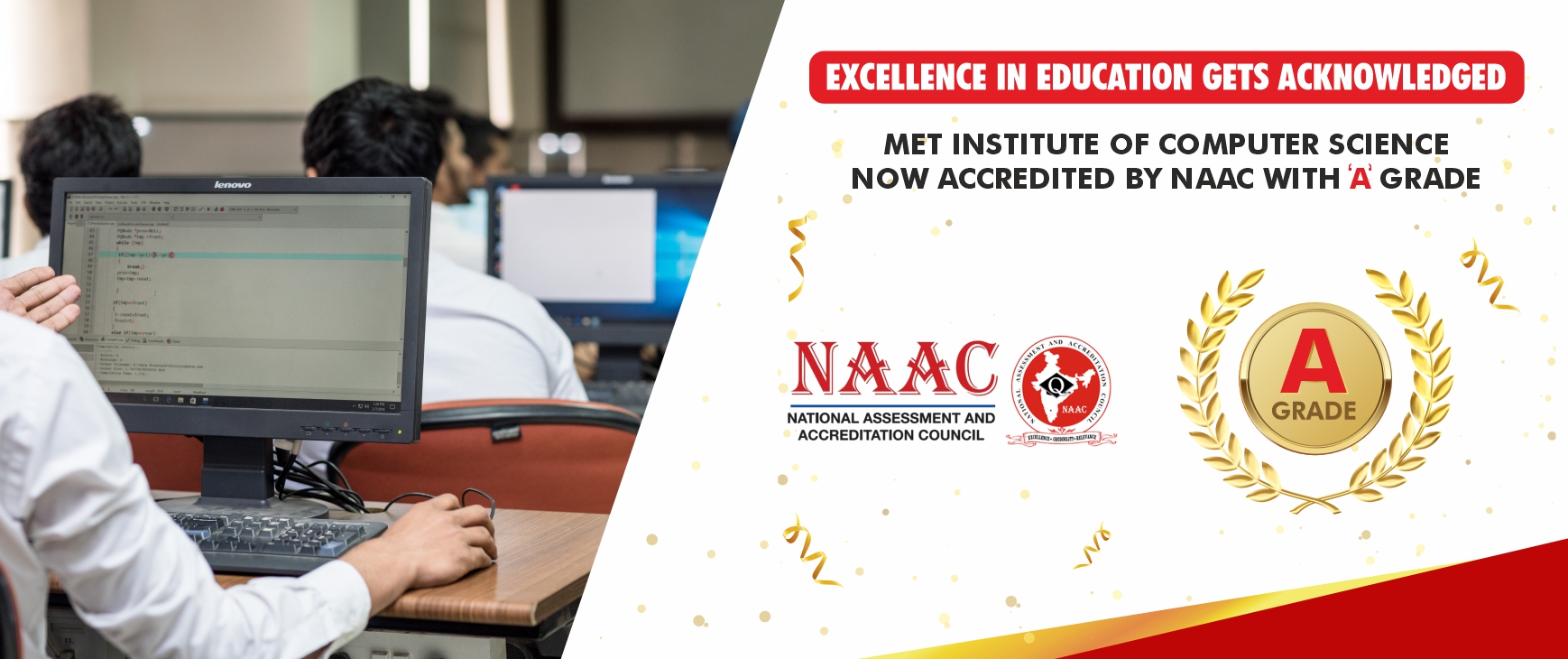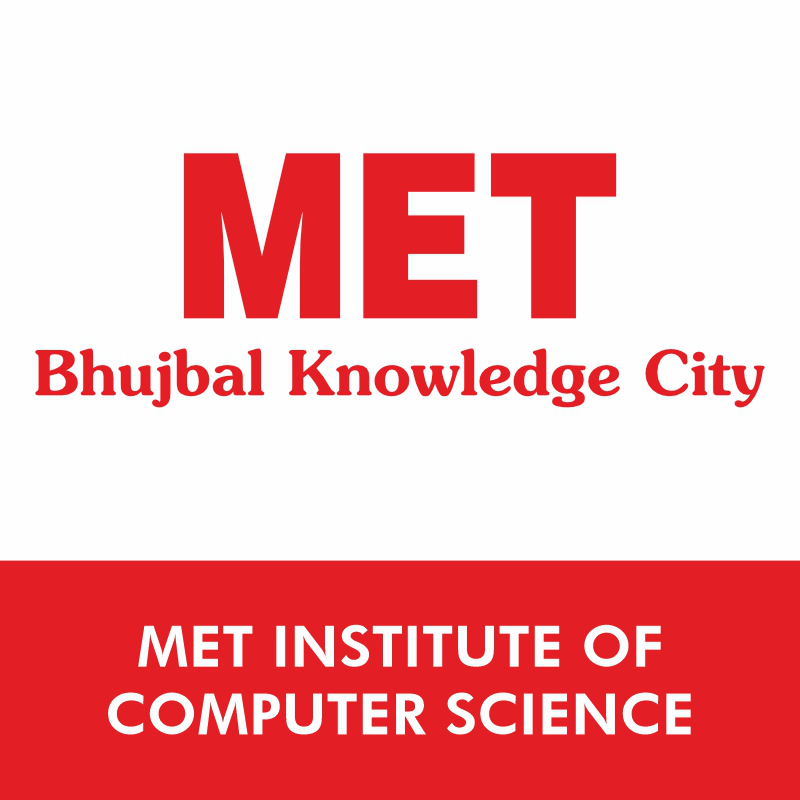


MET ICS was established in 2001 in order to create a professional and innovative learning environment that focuses on creating IT professionals that effectively blend technology and management.
The Institute conducts the two-years, full-time Master of Computer Application (MCA) affiliated to the University of Mumbai.
At MET ICS, we strongly believe that the whole world is an IT professional's work place. Precisely, in the midst of a well-stocked library, a highly equipped computer laboratories with top-of-the-line hardware and software, and through interactive sessions with dedicated faculty who are experts in their own fields of specialisation, students are not just technically nurtured but also professionally groomed.
In participation with the Mumbai University, MET has an association with the Tianjin University, China & the Hawaii University.
MET Institute of Computer Science is accredited with 'A Grade' by the National Assessment and Accreditation Council (NAAC).
To evolve as a center of excellence in building competent and socially responsible computer professionals.
• Impart knowledge and quality Education to create skilled computer professionals.
• Create an environment that encourages collaborative and inter-disciplinary activities.
• Facilitate all round growth of students to have successful careers while maintaining high
ethical standards.
PEO 1: MCA graduates will be successful professionals in the IT industry and
associated areas.
PEO 2: MCA graduates will demonstrate practical and inter-disciplinary
skills along with an ability to work in varied professional environments with societal
concern.
PEO 3: MCA graduates will use of modern tools and emerging technologies
while exhibiting ethical and professional standards.
• K Computational Knowledge (PO1)
• A Problem Analysis (PO2)
• D Design and Development of Solutions (PO3)
• I Investigation of Complex Problem (PO4)
• M Modern Tool Usage (PO5)
• E Ethics (PO6)
• E Life Long Learning (PO7)
• T Project Management and Finance (PO8)
• T Communication (PO9)
• O Societal and environmental concern (PO10)
• M Individual and Team work (PO11)
• I Innovation & Entrepreneur-Ship (PO12)
Apply knowledge of mathematics, programming logic and coding fundamentals for solution architecture and problem solving.
Identify, review, formulate and analyse problems for primarily focusing on customer requirements using critical thinking frameworks.
Design, develop and investigate problems with an innovative approach for solutions incorporating ESG/SDG goals.
Select, adapt and apply modern computational tools such as development of algorithms with an understanding of the limitations including human biases.
Function and communicate effectively as an individual or a team leader in diverse and multidisciplinary groups. Use methodologies such as agile.
Use the principles of project management such as scheduling, work breakdown structure and be conversant with the principles of Finance for profitable project management.
Commit to professional ethics in managing software projects with financial aspects. Learn to use new technologies for cyber security and insulate customers from malware
Change management skills and the ability to learn, keep up with contemporary technologies and ways of working.
 Our Esteemed Faculty
Our Esteemed Faculty